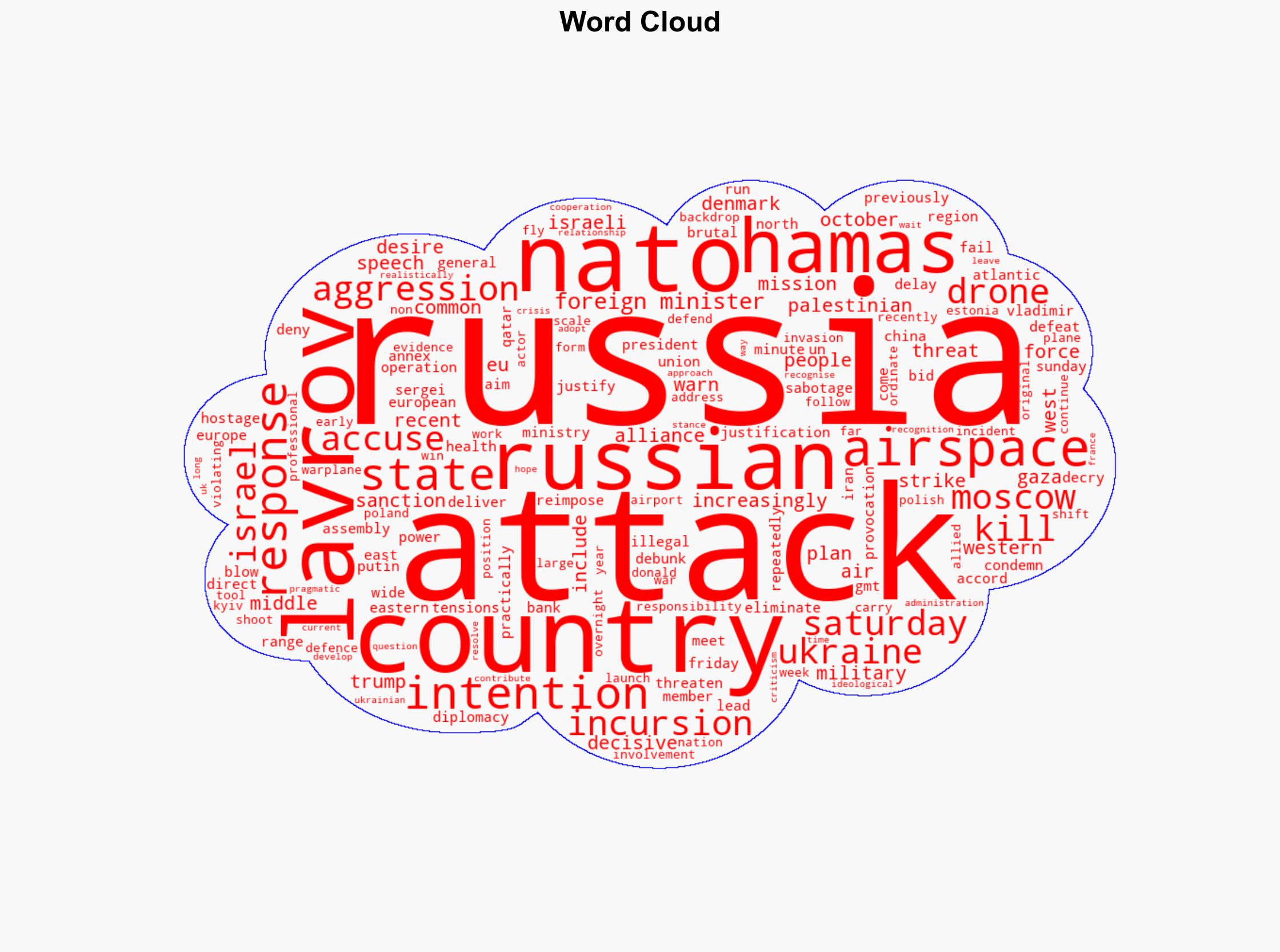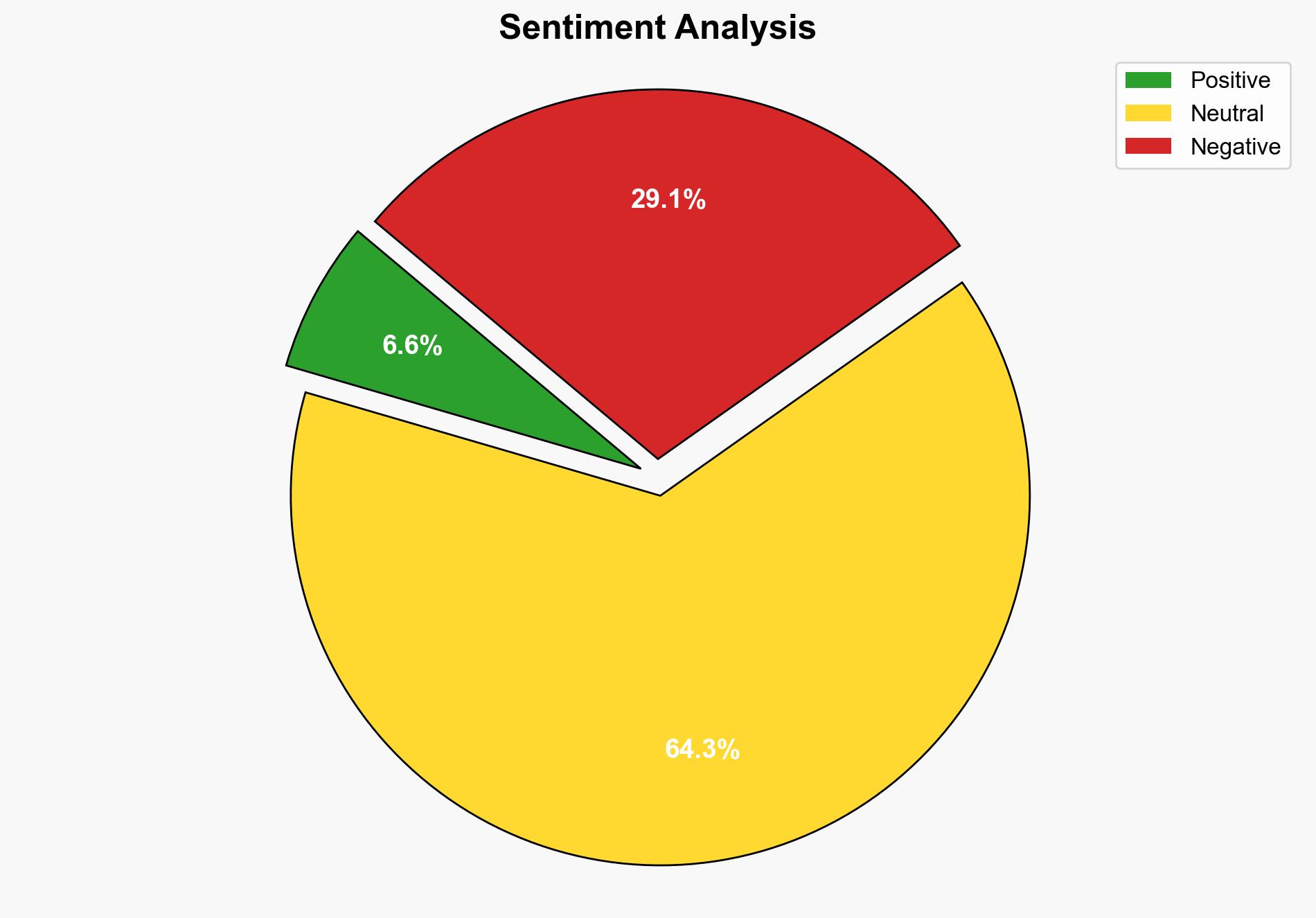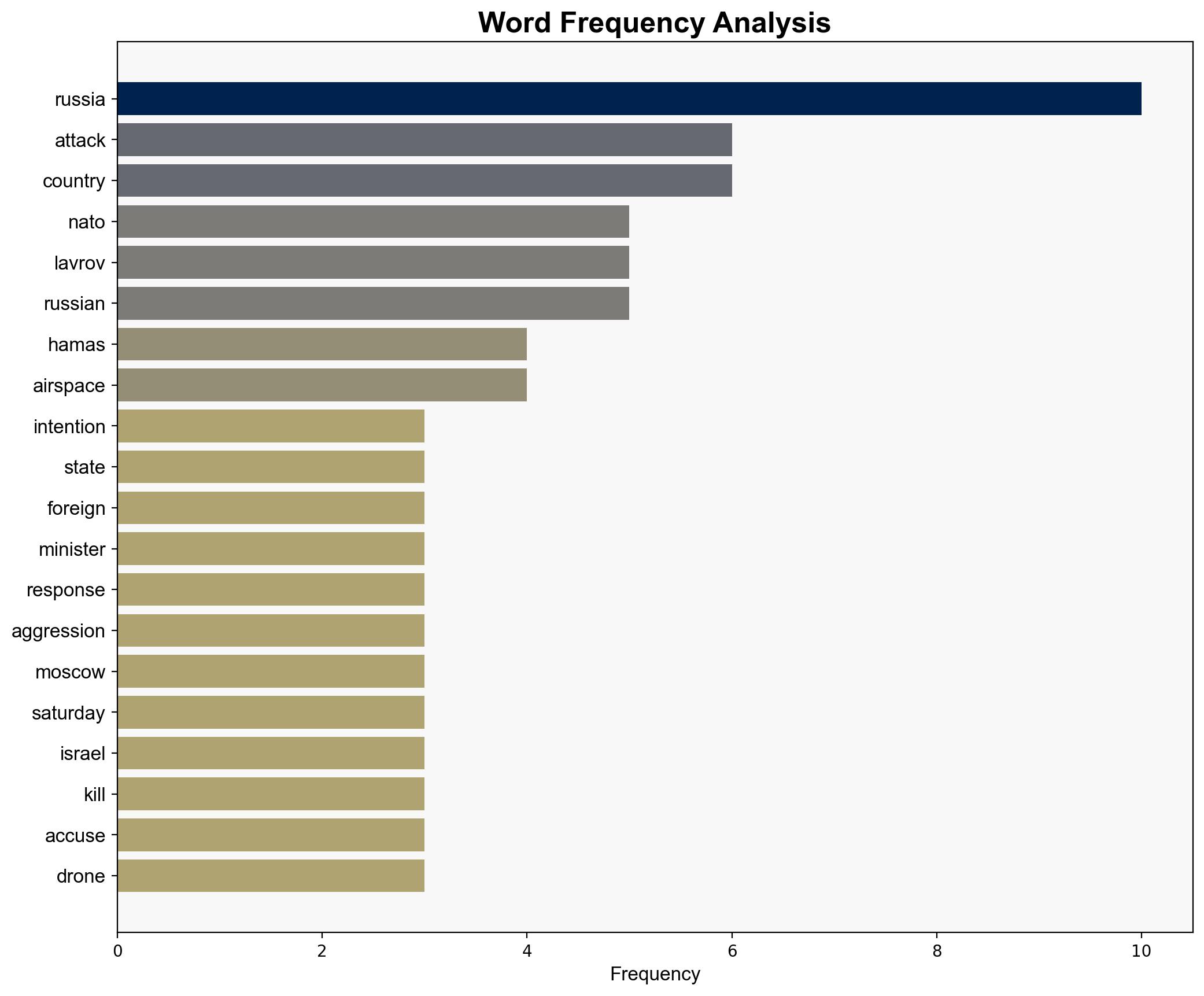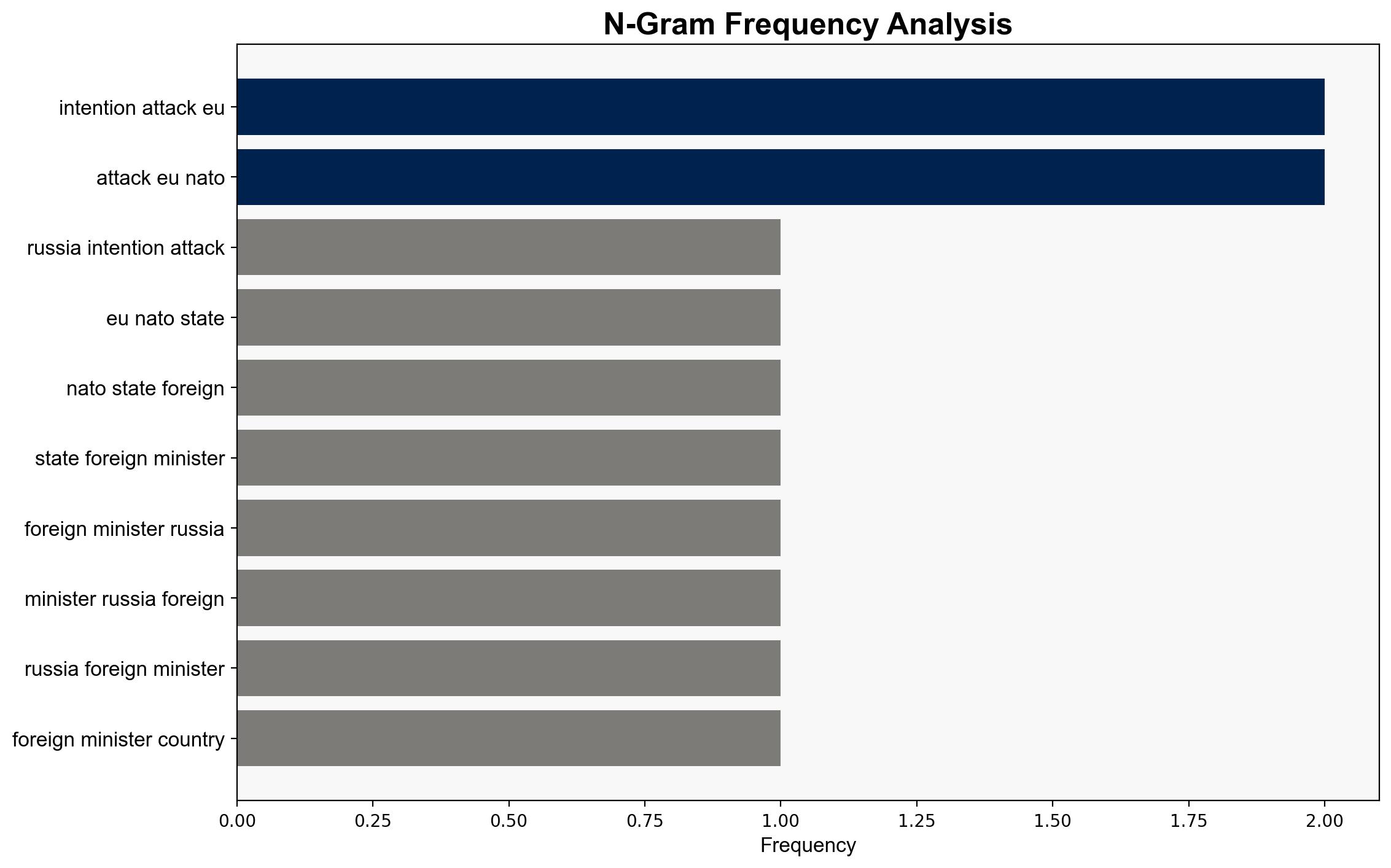Russia has no intention of attacking EU or Nato states foreign minister says – BBC News
Published on: 2025-09-27
Intelligence Report: Russia has no intention of attacking EU or Nato states foreign minister says – BBC News
1. BLUF (Bottom Line Up Front)
The most supported hypothesis is that Russia’s statements are primarily aimed at reducing tensions and avoiding direct confrontation with NATO and EU states, while maintaining strategic ambiguity. Confidence level: Moderate. Recommended action: Enhance intelligence collection on Russian military movements and diplomatic communications to verify intentions and prepare for potential shifts in strategy.
2. Competing Hypotheses
1. **Hypothesis A**: Russia genuinely has no intention of attacking EU or NATO states and seeks to de-escalate tensions to focus on other strategic priorities, such as the situation in Ukraine and Middle Eastern alliances.
2. **Hypothesis B**: Russia’s statements are a strategic deception to mask potential aggressive intentions or to buy time for military repositioning or diplomatic maneuvering.
Using ACH 2.0, Hypothesis A is better supported due to the lack of direct evidence of imminent aggression and Russia’s historical pattern of using diplomatic channels to manage international perceptions. However, Hypothesis B cannot be dismissed due to Russia’s past use of strategic deception.
3. Key Assumptions and Red Flags
– **Assumptions**: It is assumed that Russia’s public statements reflect its actual strategic intentions. This may overlook the possibility of strategic deception.
– **Red Flags**: The denial of responsibility for incidents such as drone incursions and airspace violations could indicate attempts to obfuscate true intentions.
– **Blind Spots**: Limited insight into internal Russian military deliberations and decision-making processes.
4. Implications and Strategic Risks
– **Geopolitical**: Continued tensions could lead to miscalculations, especially in border regions with NATO states.
– **Economic**: Sanctions and countermeasures could further strain Russia’s economy, impacting its military capabilities.
– **Cyber**: Increased cyber operations against NATO states as a non-military tool of influence.
– **Psychological**: Propaganda and misinformation campaigns to influence public opinion within NATO countries.
5. Recommendations and Outlook
- Enhance surveillance and reconnaissance activities along NATO’s eastern borders to detect any unusual military movements.
- Strengthen diplomatic channels with Russia to clarify intentions and reduce the risk of miscommunication.
- Scenario-based projections:
- Best Case: Russia genuinely seeks de-escalation, leading to improved diplomatic relations.
- Worst Case: Russia uses the current diplomatic stance as a cover for surprise military actions.
- Most Likely: Continued strategic ambiguity with sporadic provocations to test NATO’s responses.
6. Key Individuals and Entities
– Sergei Lavrov
– Vladimir Putin
– NATO
– EU
– Hamas
– Israel
7. Thematic Tags
national security threats, cybersecurity, counter-terrorism, regional focus





